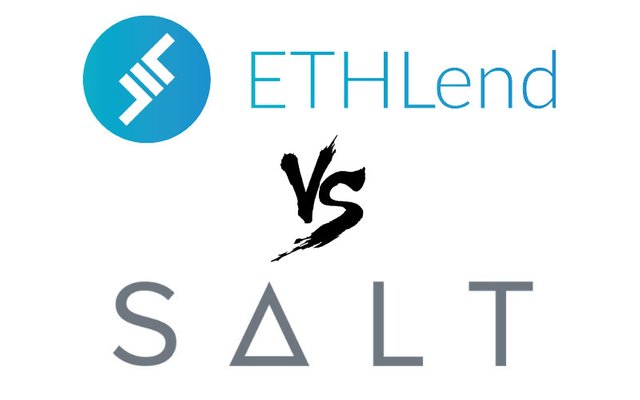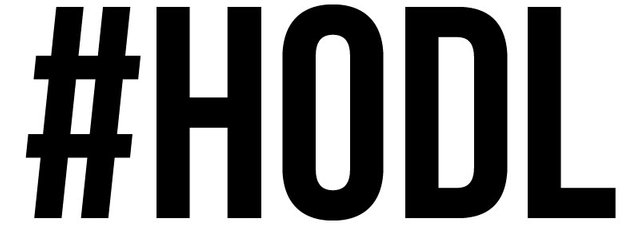
Today we are going to talk all about a problem that's occurring more and more frequently in the Cryptocurrency community. If you're like myself, you love Bitcoin and Cryptocurrencies, and you really don't want to sell them.

I mean, I can't even explain how much I would regret selling my bitcoins a few years ago. So what happens now in the real world if there's a situation where I need fiat currency? Most people only have one option, which is to sell their crypto or to sell their Bitcoins and then use that cash for whatever expenses they have.
Why Decentralized Lending Matters
The SALT lending platform offers a different solution. With SALT lending I would put some of my bitcoins in an escrow account. The SALT lending platform would match me with somebody that would be willing to lend me fiat currency.
So let's say I put $20,000 worth of cryptocurrency in an escrow account. Then somebody lends me $10,000 with a 10% interest rate. Which means I’ll pay $1,000 over the year for the interest and once I finished paying back the $100 loan, the Bitcoins are released back to me.
So I have the advantage of being able to use fiat currency. I have the advantage of holding onto my cryptocurrency assets, and the person that lends the fiat currency gets 10% of interest on their money. This is why decentralized lending platforms are such a big deal in the cryptocurrency space.
SALT (SALT) vs ETHLend (LEND)
Let's take a look at the two different lending platforms and how they are different. We have SALT and we also have ETHLend. ETHLend and SALT are doing similar things, although both are quite different.
ETHLend is trying to establish a credit protocol, so they're going to allow p2p lending. This type of P2P lending is probably not compliant in the United States, at the moment. This means that for most U.S customers, ETHLend is a service that we're not able to use. I think this is going to be really useful in the rest of the world, especially in providing banking services to the unbanked.
Ethland really has huge implications for the 6,000,000,000 people living in the world, although it probably has the furthest to go in development. SALT is a lot more straightforward and it's easier to understand. It also has a lot less risk involved, which is probably why right now it has a market cap of $680,000,000.
SALT Explained

For example, If you’re already fairly wealth and you're too afraid to get into crypto because you don't really want or understand it, with SALT you can. You can use the SALT lending platform to lend fiat currency at a 10% interest rate. Right now if you're a wealthy person, you have the option of leaving money in the bank and probably getting 1% or 2% interest or you could lend money on the SALT decentralized lending platform and receive 10%.
The lender is protected because, for example, if someone wants to borrow $10,000 of fiat currency SALT is Ggoing to probably make the borrower deposit close to $20,000 worth of Bitcoin in order to borrow the fiat money. If the price of Bitcoin falls SALT may give the borrower 2 options. 1 the borrower can terminate this loan, or 2 the borrower can add more Bitcoin as collateral.
If you don’t have fiat money available to you, but you have cryptocurrency, this is a good option for you. So for example, if you borrow $10,000, you would pay a 10% interest fee. In one year you would pay the $10,000 back, plus 10% percent in interest which is $1,000 and that's all done in your local currency. The borrower has no need to understand what's going on in the crypto markets other than SALT is providing the platform where they'll always be equity to cover the loans that are given.
SALT is a fairly straightforward platform. What I do find interesting, and I find this interesting with a lot of the crypto currencies right now, is the scope of the service. It's really huge, with massive implications.
ETHLend Explained

ETHLend is much more ambitious because ETHLend is really promising financial services for people that are otherwise unable to get financial services. I think their explainer video did the best job of explaining in theory how the ETHLend platform is supposed to work.
Opposed to SALT which has a very straightforward and easy to understand business model, ETHLend is a lot more complicated. There are a few major problems. The first is the ETHLend runs on an ERC20 token, so it's running off the price of Ethereum and it's using Ethereum as its backbone on which to run its whole network.
To understand why this is a problem, we need look no further than happened recently happen with CryptoKitties. As you may know, Cryptokitties is a decentralized APP (Dapp). It is a game that runs on the Ethereum network. It overloaded the network due to its popularity. It doubled or tripled the cost of doing Ethereum transactions and it really just showcased how a week this whole infrastructure is and how important it is that we scale up.
The problem with lending money to people that don't have money is that you need a way to make sure that the lender feels safe and if there's no collateral backing that up, or even if there is collateral. It makes it really difficult if collateral can’t easily be a exchange for cash. For example, if somebody wants borrow money using a cow as collateral, how are you going to repossess a cow?
They say that these loans are legally binding, but if the borrower doesn't pay, the lending would need to go through a court system. I see this working really great in theory, I think this is really going to help to bank the unbanked.
SALT vs ETHLend Verdict
The reason that these companies are so valuable and the reason that they have such massive potential is that these types of systems can replace banks. As things stand, ETHLend has a big disadvantage in that they're probably not going to be U.S. compliant. This is due to the fact they only way peer to peer lending would work in the US is if you are an accredited investor.
So that has nothing to do with ETHLend, and everything to do with the U.S. needing to update their laws. ETHLend does however need to develop a process to judge somebody's credit worthiness. They could basically integrate social media, and integrate many payment track records monitoring tools.
I feel that ETHLend has a lot further to go, although it has much larger implication for the 6,000,000,000 people that are potential users.
SALT’s platform is a much more straightforward business model. I think that it's going to be much easier for them to get up and running and become profitable. Which is also why they have a high market cap than ETHLend.
What do you think?
Will you invest in SALT or ETHLend? is Decentralized lending something you are excited about? Share your thoughts in the comments below.
Social Media
Facebook: https://www.facebook.com/davidhay.org/
Reddit: https://www.reddit.com/r/DavidHay
Steemit: https://steemit.com/@davidhay/
Favorite Tools
Desktop Wallet:http://exodus.io
IPhone Wallet: http://blockchain.info
Hardware Wallet: http://Trezor.io
Coin Research: https://coincheckup.com/
Mine Crypto With Your Computer: http://bit.ly/2vwse9l
Accept Crytpo on Your Website: http://bit.ly/2A17fkR
Bitcoin Blockchain Explorer: https://blockexplorer.com/
awesome information!!! thanks for sharing, gotten to you thru your DOGEcoin video, thank you for your input
Downvoting a post can decrease pending rewards and make it less visible. Common reasons:
Submit
I am glad to see you here. I had just about given up on Steem. Great video.
Are you giving away etherium here on Steem?
Downvoting a post can decrease pending rewards and make it less visible. Common reasons:
Submit